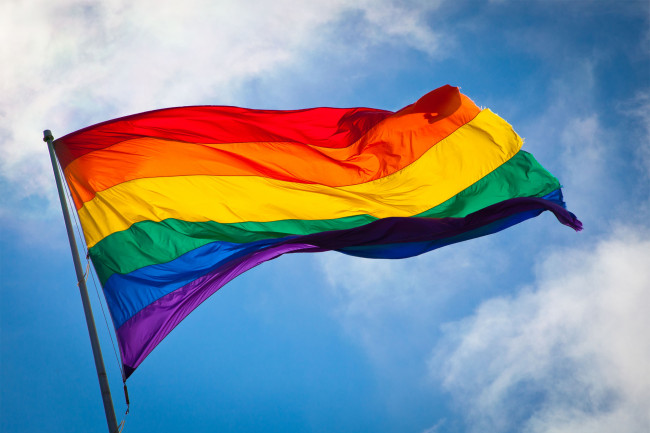Scott: True LGBTQ Allies Don’t Out
May 20, 2020
“Living your truth” is a staple in many stories of coming out as a member of the LGBTQ community. Its platitudinous ring aside, embracing the truth can free a person of a long-held sense of shame, assuming they have done so on their own terms. When someone else commandeers the story, coming out — or more accurately, being outed — can be a distressing, alienating experience.
Those in the closet understand the dangerous consequences of being outed — even in America, where gay marriage is legal and 49% of non-LGBTQ American adults consider themselves at least ‘somewhat’ comfortable with LGBTQ people. Despite the success of visible gay, bisexual and transgender celebrities and corporate displays of rainbow-capitalism each June, being out is not profitable (or even safe) for many. The mainstream adoration of the trans powerhouses behind Pose and the chic, beneficent Fab Five does not reflect reality, where protection against employment discrimination hangs by a thread, the children of LGBTQ parents may be denied citizenship and nearly one in five hate crimes are motivated by anti-LGBTQ bias.
These are very real threats that can make coming to terms with one’s sexuality or gender an agonizing process, especially when there is no knowing how it will be received. Allies who are privy to this sensitive transition must operate with extreme care so as not to speculate, gossip or out the LGBTQ people in their lives. Allies cause significant harm when they mistake their sympathy with the cause for ownership. Too many self-proclaimed allies have inadvertently (and sometimes maliciously) forced a person to “live their truth” before they are ready.
Access to Information Does Not Make it Yours to Share
“A lot of people who think of themselves as allies engage in behavior that can make queer people feel deeply uncomfortable, unwelcome or unseen,” wrote journalist Carlos Maza in a Washington Post op-ed. “It’s almost never intentional,” said Maza. “Straight and cisgender people don’t know what it’s like to be queer, and vice versa, and that can produce blind spots that make even well-meaning allies act like jerks.”
Navigating the closet is a hurdle for many allies. Because straight and cisgender people never face any expectation to come out, they cannot conceptualize the claustrophobia a vulnerable, closeted person might be wrestling with. Allies might assume that, as a good person who does not wish to harm LGBTQ people, they have sound enough judgment to decide who can know their gay and trans friends’ secrets.
Loose-lipped allies are a continual risk on college campuses, where they may incorrectly assume that everyone they interact with is LGBTQ-friendly. They might flex their liberal credentials by name-dropping their closeted LGBTQ friend or fail to resist telling a funny story that exposes others. Either way, they rationalize blabbing, because how could it be dangerous when everyone around them is down for the cause?
In reality, good intentions do little to mitigate the violation of being outed. According to a guide ,being an ally to LGBTQ students, outing “occurs when someone else tells others that a particular individual is LGBTQ without that person’s permission,” and outing someone (especially without their knowledge) damages their mental and emotional health, and possibly even jeopardizes their physical safety. It doesn’t matter how “safe” you thought the environment was — you have robbed a person of the freedom to come out on their own terms.
Outing Can Result in Real, Long-Term Suffering
According to Dion Kagan, gender and sexuality studies lecturer at the University of Melbourne, “Telling people that ‘your sexuality doesn’t matter’ is a liberal platitude. Being queer isn’t inconsequential — it’s fundamental to how we organize and understand social and intimate relations.” It is also fundamental to safety, and feeling unperturbed by LGBTQ people does not preclude an ally from endangering them.
Outing comes at a cost the ally will never pay. An outed person may feel trapped, vulnerable and out of control of the situation (they may not even know who or how many people have been told). Whatever valid reasons they may have had for protecting their sexuality or gender have been ignored, and the journey to “living their truth” is now harder, if they make it there at all.
Young people are especially vulnerable. In 2016, approximately 1.3 million gay, bisexual and lesbian students experienced violence in their high schools (and I doubt the number has fallen in the years since). Just last fall, a Tennessee high school student died by suicide after his classmates outed him as bisexual by posting screenshots of his private conversations with a male classmate. Such loss may become more common as anti-LGBTQ bullying worsens. According to GLAAD, “people ages 18-34 are increasingly uncomfortable in ‘personal scenarios’ with LGBTQ people — like learning that a family member, doctor or child’s teacher is lesbian, gay, bisexual or transgender.” Progress has never been guaranteed or linear.
This is especially true in Utah. Despite recent progress, LGBTQ Utahns of all ages remain vulnerable to disownment, homelessness, incarceration, suicide, religious discrimination and social ostracization. Vulnerable LGBTQ youth across the nation are forced out of spiritual communities and endangered in their own homes (which few can escape during a global pandemic). It is easy to see how outing can be an act of violence.
Coming Out and Outing is Complicated, Even Within the LGBTQ Community
While, generally speaking, people should not be outed, the LGBTQ community is occasionally faced with complicated exceptions. Some believe that it is justified to out a person if they are a public figure or politician who uses their platform to strip LGBTQ people of their rights. Outing might also be necessary to help someone escape an abusive partner or expose an unchecked sexual predator. Other questions, such as whether it is acceptable to out someone posthumously, remain. There are few unequivocal answers, but the unnecessary outing of private persons complicates our ability to navigate such complexity.
And not all members of the LGBTQ community are “good” allies by default. The gay rights movement has often left trans people behind, and people can out others despite experiencing similar struggles. A few years ago, I ran into an out classmate who was visiting my place of work. Completely unprovoked, he jovially pointed out a few of my coworkers that he had previously dated or been intimate with. While it would be one thing for him to share details about himself, flippantly outing others for the sake of small talk is quite another. Many of these coworkers were not out to me or in the workplace. They could have suffered professional consequences had he revealed this to the wrong person, and should never have had such private information shared without their consent.
Perfection Isn’t Required — But Effort and Thoughtfulness Are
When a self-proclaimed ally controls when and how a person comes out, they command that person to conform to their expectations of what being LGBTQ is. Outing someone destroys nuance, creates a false binary and allows those outside the LGBTQ community to define what being gay, bisexual, gender non-conforming and trans is “supposed to” look like. This is not for the ally to decide. Your friend telling you that he is gay does not magically make you the proprietor of that information. Unless explicitly stated otherwise, it is not yours to share — regardless of your desire to “celebrate” them or your belief that you are only telling LGBTQ-friendly people.
An ally’s role is to offer support — not to out, pry for details, or trivialize (because if a friend informs you that she is bisexual, there are few worse ways to repay her trust than by asking if she would help you and your boyfriend fulfill a sexual fantasy). Social progress is difficult. It requires “imperfect allies, momentary allies, and moment-to-moment alliances,” all of which are “flawed and not safe, yet required and of use.” No one is asking for perfection, only that allies show compassion and think decisions through. If you out someone, be it for fun, clout or even revenge, LGBTQ people may need allies against you.








